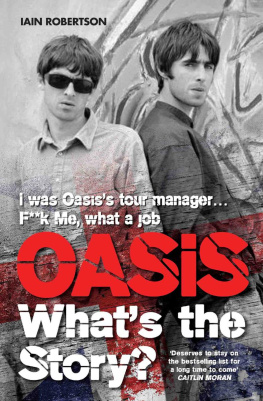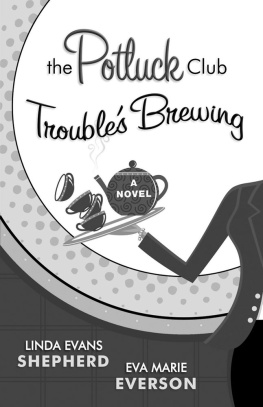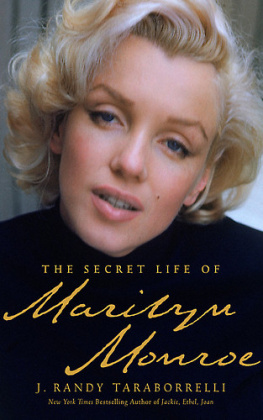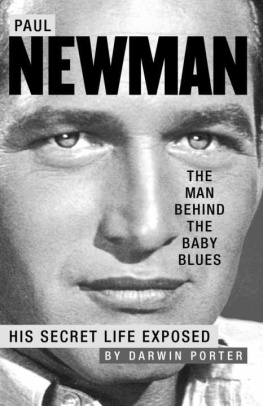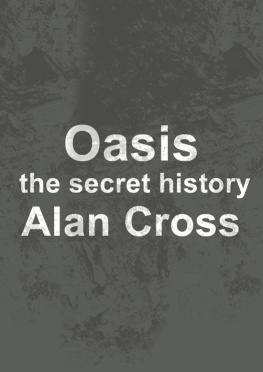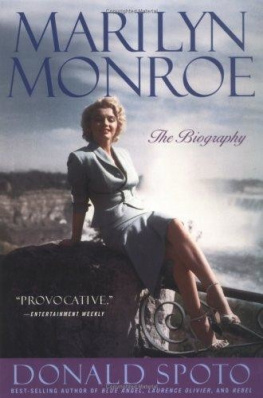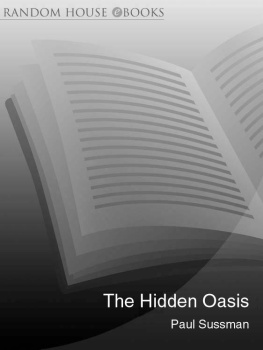Marilyn Paul - An oasis in time : how a day of rest can save your life
Here you can read online Marilyn Paul - An oasis in time : how a day of rest can save your life full text of the book (entire story) in english for free. Download pdf and epub, get meaning, cover and reviews about this ebook. year: 2017, genre: Home and family. Description of the work, (preface) as well as reviews are available. Best literature library LitArk.com created for fans of good reading and offers a wide selection of genres:
Romance novel
Science fiction
Adventure
Detective
Science
History
Home and family
Prose
Art
Politics
Computer
Non-fiction
Religion
Business
Children
Humor
Choose a favorite category and find really read worthwhile books. Enjoy immersion in the world of imagination, feel the emotions of the characters or learn something new for yourself, make an fascinating discovery.

- Book:An oasis in time : how a day of rest can save your life
- Author:
- Genre:
- Year:2017
- Rating:3 / 5
- Favourites:Add to favourites
- Your mark:
- 60
- 1
- 2
- 3
- 4
- 5
An oasis in time : how a day of rest can save your life: summary, description and annotation
We offer to read an annotation, description, summary or preface (depends on what the author of the book "An oasis in time : how a day of rest can save your life" wrote himself). If you haven't found the necessary information about the book — write in the comments, we will try to find it.
Marilyn Paul: author's other books
Who wrote An oasis in time : how a day of rest can save your life? Find out the surname, the name of the author of the book and a list of all author's works by series.
An oasis in time : how a day of rest can save your life — read online for free the complete book (whole text) full work
Below is the text of the book, divided by pages. System saving the place of the last page read, allows you to conveniently read the book "An oasis in time : how a day of rest can save your life" online for free, without having to search again every time where you left off. Put a bookmark, and you can go to the page where you finished reading at any time.
Font size:
Interval:
Bookmark:


To David and Ari
Mention of specific companies, organizations, or authorities in this book does not imply endorsement by the author or publisher, nor does mention of specific companies, organizations, or authorities imply that they endorse this book, its author, or the publisher.
Internet addresses and telephone numbers given in this book were accurate at the time it went to press.
2017 by Marilyn Paul
All rights reserved. No part of this publication may be reproduced or transmitted in any form or by any means, electronic or mechanical, including photocopying, recording, or any other information storage and retrieval system, without the written permission of the publisher.
Book design by Amy King
Library of Congress Cataloging-in-Publication Data is on file with the publisher.
ISBN 9781623366629 hardcover
ISBN 978-1-62336-663-6 e-book

We inspire health, healing, happiness, and love in the world.
Starting with you.
RodaleBooks.com
RodaleWellness.com

Our passion for efficiency, effectiveness, and exertion has gone too far. We live today in a unique era of possibility and productivity; we love getting things done, but we are burning ourselves out. We stay up late trying to catch up on work, but we end up wasting time online, leaving us more behind than when we started. We use apps that promise to focus our minds and our time, but none of it really sticks. Instead of savoring our one precious life, we squander our natural vitality on endless to-dos and the stress of multitasking.
Many of us already know the value of slowing down, and we try to squeeze in a walk, a talk with a friend, or a good relaxed meal here and there. Maybe we even meditate or pray regularlyor at least think about it. But our efforts dont make a dent in the growing burden of fatigue we carry around. We have resigned ourselves to being spent and struggling to feel our natural vitality. Even when we can grab an hour or two of refreshment, our physical, emotional, and spiritual weariness soon returns.
We know we need to get off the merry-go-round, but how?
Theres a way out of the constant action, pressure, and tension. Its a practice that is thousands of years old, with many different namesShabbat, Sabbath, respite, and an oasis in timeand it is just as necessary and meaningful now as it was centuries ago. But for many, the very word Sabbath can bring up painful and unwanted associationsso much so that many folks reject the idea out of hand. The root of the word Sabbath just means stop or cease. But the word has been overwhelmed by centuries of other meanings and associations.
I am writing this book to show how people can create a new type of weekly retreat, one that is so refreshing and nourishing that it changes their lives. But it may require letting go of some old perceptions. Images of restriction dominate our impressions of traditional days of rest. Who believes that they will be enriched by sitting absolutely still while being chastised in church, or by going to synagogue and listening to hours of mumbled, incomprehensible prayers? Or as a friend of mine, an Episcopal priest, described it: a day of sitting on a couch, staring at the wall?
Laura Ingalls Wilders Little House series captures this distress in her descriptions of life during the pioneer days at the turn of the last century. In Little House in the Big Woods, the first book in the series, Wilder describes her grandfathers boyhood Sabbaths:
They must walk slowly and solemnly, looking straight ahead. They must not joke or laugh, or even smile. Grandpa and his two brothers walked ahead, and their father and mother walked behind them.In church, Grandpa and his brothers must sit perfectly still for two long hours and listen to the sermonand never for one instant take their eyes from the preacher.
If you remember what it was like to be a child, you know how hard that must have been.
In a more recent but equally painful account, popular author of The Man Who Mistook His Wife for a Hat, Oliver Sacks, MD, offered a beautiful and poignant description of Shabbatthe Hebrew word for Sabbathwith his family during his youth in London. He loved the closeness of his family celebration, but he could not stomach the intolerance and prejudice of the religion he experienced. Feeling deeply rejected by his family for being gay, he put Shabbat aside when he left home.
Later in his life, however, he gratefully returned to a traditional Shabbat, discovering that he could be gay and still warmly included by part of his family. I find my thoughts, increasingly,on what is meant by living a good and worthwhile lifeachieving a sense of peace within oneself. I find my thoughts drifting to the Sabbath, the day of restwhen one can feel that ones work is done, and one may, in good conscience, rest. Dr. Sackss experience offers us a way of moving forward by taking what is best about the Sabbath and fitting it to our own lives, needs, and desires.
In the popular media, among secular writers, in the corporate world, and in churches and synagogues, people are rediscovering the benefits of taking a weekly day off for rest and renewal. This new Sabbathwhich doesnt have to be based in a religious practiceis about committing time each week to remember who we really are; to reconnect with our best selves; to play, rest, reflect, and refresh; and to join with like-minded others in a time and space without action items, deadlines, and the pressure to achieve. Creating an oasis in time, a safe haven for personal restoration, is not only the way out, but its also the way up.
Taking back our time is a subversive act these days. It entails claiming that we are much more than producers and consumers. That we are not only about end results. That the state of our hearts and souls really matters. That we need to express our deep care for community without any haste. That we can have a good day without achieving anything other than unwinding, slowing down, connecting, and experiencing grace.
To truly reap its benefits, we need to approach our oasis with purpose. This book offers you a path to creating dedicated time each week for enjoyment, renewal, reflection, and deepening your sense of the sacred. Its hard to turn toward awe when you are racing from one thing to the next. But you can learn to put your tasks aside to protect your downtime. And youll see how that time can renew and enrich your entire life.
Im a coach and organizational change consultant. I help people work together better, and lately I have been helping teams and organizations work through the pernicious costs of chronic work overload. I often recommend a full day off each weekend for all employees, but I see that many leaders in my client organizations are stumped about how to make that happen. They promote 24/7 availability. So, in part, this is a guide for them and for you.
I, myself, stumbled upon weekly rest time. Im Jewish but wasnt particularly interested in Jewish practice. When I was in graduate school, though, I had a friend who invited me to his
Font size:
Interval:
Bookmark:
Similar books «An oasis in time : how a day of rest can save your life»
Look at similar books to An oasis in time : how a day of rest can save your life. We have selected literature similar in name and meaning in the hope of providing readers with more options to find new, interesting, not yet read works.
Discussion, reviews of the book An oasis in time : how a day of rest can save your life and just readers' own opinions. Leave your comments, write what you think about the work, its meaning or the main characters. Specify what exactly you liked and what you didn't like, and why you think so.

